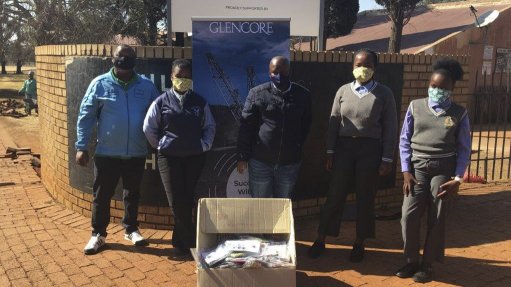
COVID-19 has presented the country with immense challenges and Glencore has adapted their existing social investment programmes to address the changing social needs of communities caused by the pandemic. With many small businesses having taken a hard knock due to the impacts of the Covid-19 pandemic, Glencore saw it fit to continue supporting host communities in the fight against COVID-19 by directly linking their COVID-19 relief programmes to empowering local organisations.
In its bid to continue with the mass distribution of fabric masks to help communities protect themselves from contracting the COVID-19 virus, Glencore Coal partnered with local Non-Profit Organisation, Abanqobi to manufacture 11 000 masks to be distributed to local schools in the Emalahleni and Steve Tshwete Local Municipalities.
Abanqobi is a woman-led organisation which has been in existence since 2013 and aims to build resilience among vulnerable children and youth, as well as their caregivers through:
- Skills development
- Academic empowerment
- Economic strengthening
- Community upliftment
The masks were distributed to 11 local schools in the Emalahleni and Middelburg communities and will go a long in ensuring that schools continue to protect their staff as well as learners against the Coronavirus.
“Masks remain a necessary part of protecting people against the Coronavirus especially as the country gradually begins to resume most economical activities. We are so proud to have worked with the Abanqobi non-profit organisation especially because as an organisation seeking to create a positive impact in their communities, they fully align with our progress together vision.” said Glencore Coal’s Acting Community Manager, Ian Troskie.
Since the country was hit by the COVID-19 pandemic Glencore has donated over 60 000 masks. To date, Glencore has assisted its host communities through various relief programmes such as the provision of screening and testing in communities, the supply of water tanks in water scarce communities as well as through the supply of food aid and e-learning programmes to support the education of learners during lockdown, to name but a few.